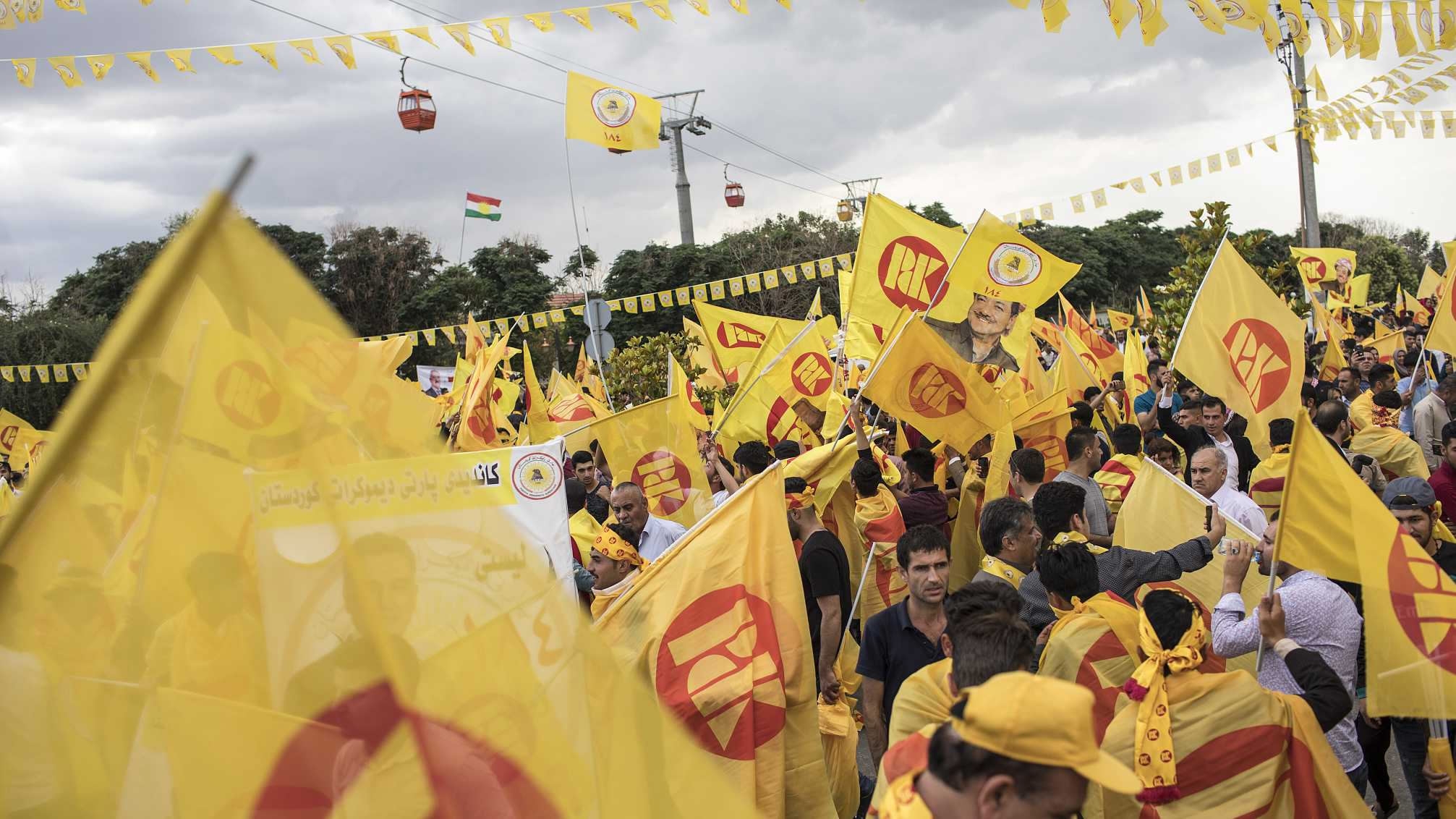Iraqis will vote in parliamentary elections on Saturday against the backdrop of renewed tensions in the region after the US withdrawal from the Iran nuclear deal.
The elections, the first since all territory lost to ISIL was retaken by the Iraqi government, and the fourth since the overthrow of Saddam Hussein, will see three challengers compete for the premiership of the Middle Eastern country.
The country has been enjoying a period of relative stability, but remains at a delicate juncture. The three main ethnic and religious groups – the majority Shia Arabs and the minority Sunni Arabs and Kurds – are at odds, and there are splits within the groupings which are likely to make post-election deal-making complex.
Added to the mix is the rivalry between Washington and Tehran, intensified by US withdrawal from the Iran deal. Iraq must carefully juggle relations with the foes, given that it is closely allied with both.
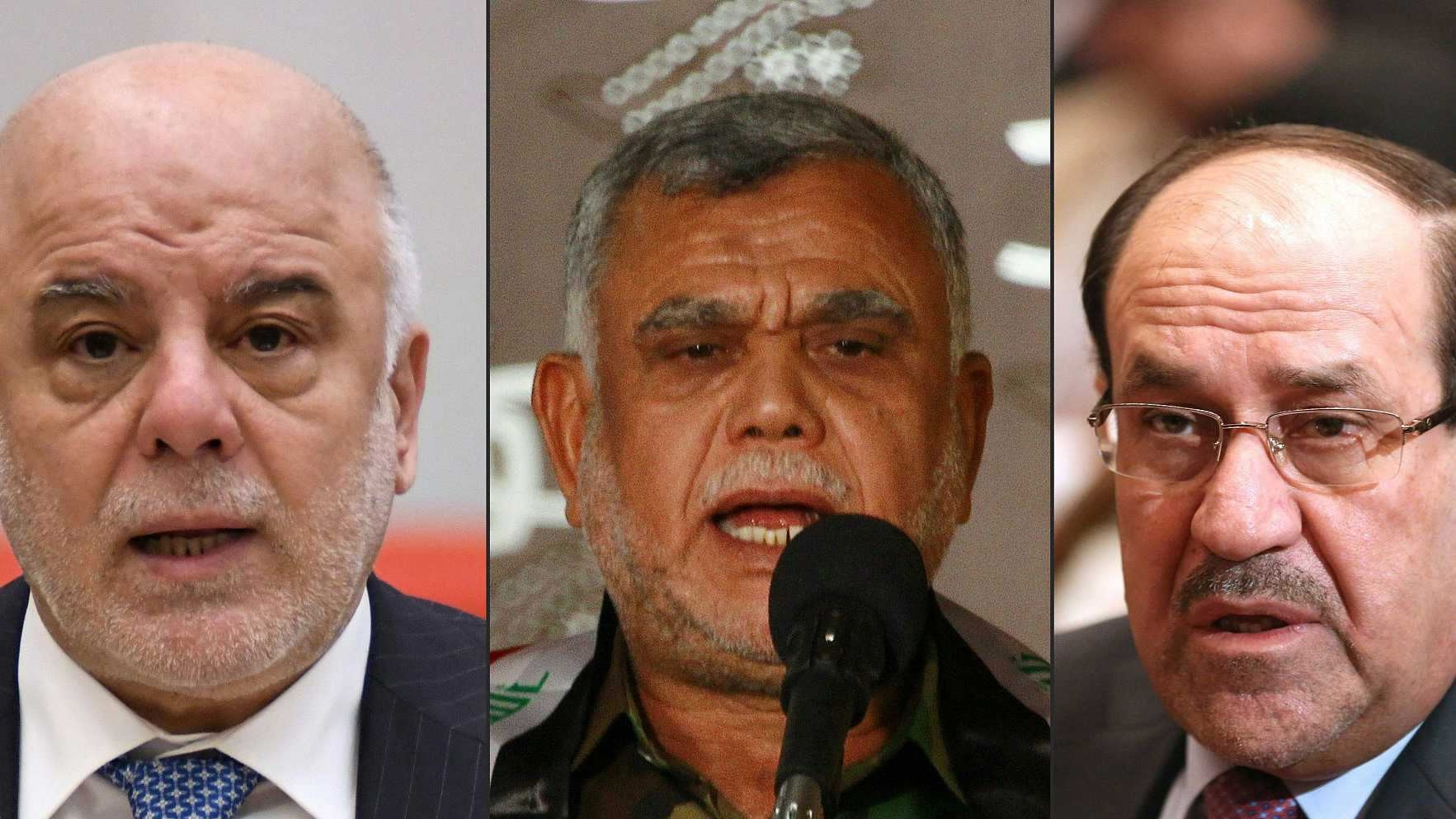
This combination of pictures created on April 21, 2018 shows Iraq's Prime Minister Haider al-Abadi (L) delivering a speech in Tokyo on April 5, 2018, and Hadi al-Amiri (C), who is in charge of the Shiite Muslim Badr Brigades, delivering a speech, on October 5, 2015, in the southern Iraqi city of Najaf, and Iraq's Vice President Nuri al-Maliki (R) attending a parliament session in Baghdad on September 8, 2014. /VCG Photo
This combination of pictures created on April 21, 2018 shows Iraq's Prime Minister Haider al-Abadi (L) delivering a speech in Tokyo on April 5, 2018, and Hadi al-Amiri (C), who is in charge of the Shiite Muslim Badr Brigades, delivering a speech, on October 5, 2015, in the southern Iraqi city of Najaf, and Iraq's Vice President Nuri al-Maliki (R) attending a parliament session in Baghdad on September 8, 2014. /VCG Photo
Contenders for PM
Prime Minister Haider al-Abadi is running for a second term, but faces stiff competition from within his Shia community.
Analysts believe the incumbent is marginally ahead, but he will need to form a coalition post-election to form a government – the Shia factions are divided into five lists, and the three men at the head of the main lists are the likely contenders to be prime minister.
Haider al-Abadi (Nasr Coalition): A Shia who has been praised for reducing sectarian tensions during his four-year term. This broad approach has earned some support from Sunnis, though his tough response to the Kurdish independence bid means he has few supporters in that community. He has been accused of failing to curb government corruption, and the economy has struggled amid the outlay required to fund the defeat of ISIL.
Nuri al-Maliki (Dawat al-Qanoon): Abadi's predecessor as prime minister is running again, backed by a hardline Shia base. He lost to Abadi in 2014 after ISIL took control of around one-third of the country, a loss opponents have blamed on sectarian policies that divided the armed forces. He is proposing to end the country's unofficial agreement whereby cabinet posts are shared between groupings.
Hadi al-Amiri (Fatah Coalition): Amiri led paramilitary units that fought alongside Iraqi troops in the fight against ISIL and is viewed as a war hero by many Shias. He is running on a platform highlighting that victory. He wants US troops to leave Iraq and has close ties to Iran.
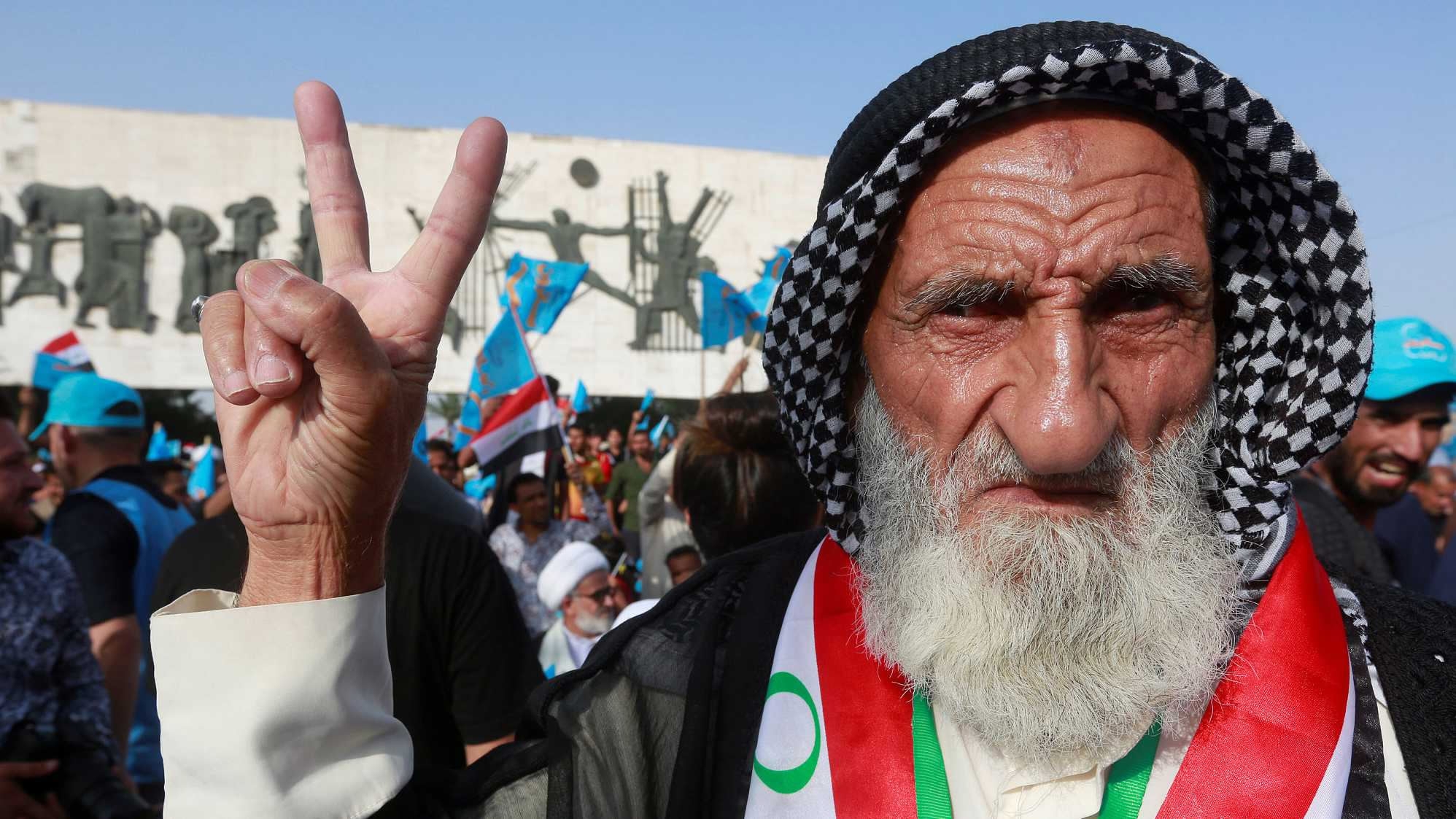
A supporter of the Al Sairun Party, which is supported by the Iraqi Shia cleric Moqtada al-Sadr, attends an election campaign rally, ahead of the parliamentary election in Baghdad, Iraq May 4, 2018. /VCG Photo
A supporter of the Al Sairun Party, which is supported by the Iraqi Shia cleric Moqtada al-Sadr, attends an election campaign rally, ahead of the parliamentary election in Baghdad, Iraq May 4, 2018. /VCG Photo
Challenges
Removing ISIL from Iraqi territory was costly to the country's coffers and infrastructure, and the new government will be tasked with a major reconstruction job as well as trying to prevent a return to sectarian violence, boosting the economy and reducing unemployment.
Abadi announced five months ago that ISIL had been driven out of Iraq, but the destruction the militant group left in its wake means a rebuilding job is needed.
The new government will also have to negotiate tensions between Iran and the US. Abadi has been praised for maintaining good relations with Tehran, while being seen as someone the West can work with. His opponents are both regarded as being much closer to Tehran. There are fears that the rivalry could spill over into Iraq, where 5,000 US troops are posted.
Although ISIL no longer controls territory in the country and violence has been limited recently, jihadists remain a threat. ISIL has threatened to attack polling stations and there are fears that a post-election power vacuum could open the door for the return of the terrorist group.
Sunnis and Kurds
Millions of Sunnis languish in displacement camps, many are out of pocket and trying to rebuild destroyed homes in cities reduced to rubble. The Sunni politicians that have held positions in government are largely discredited and there is no national Sunni leadership or party structure.
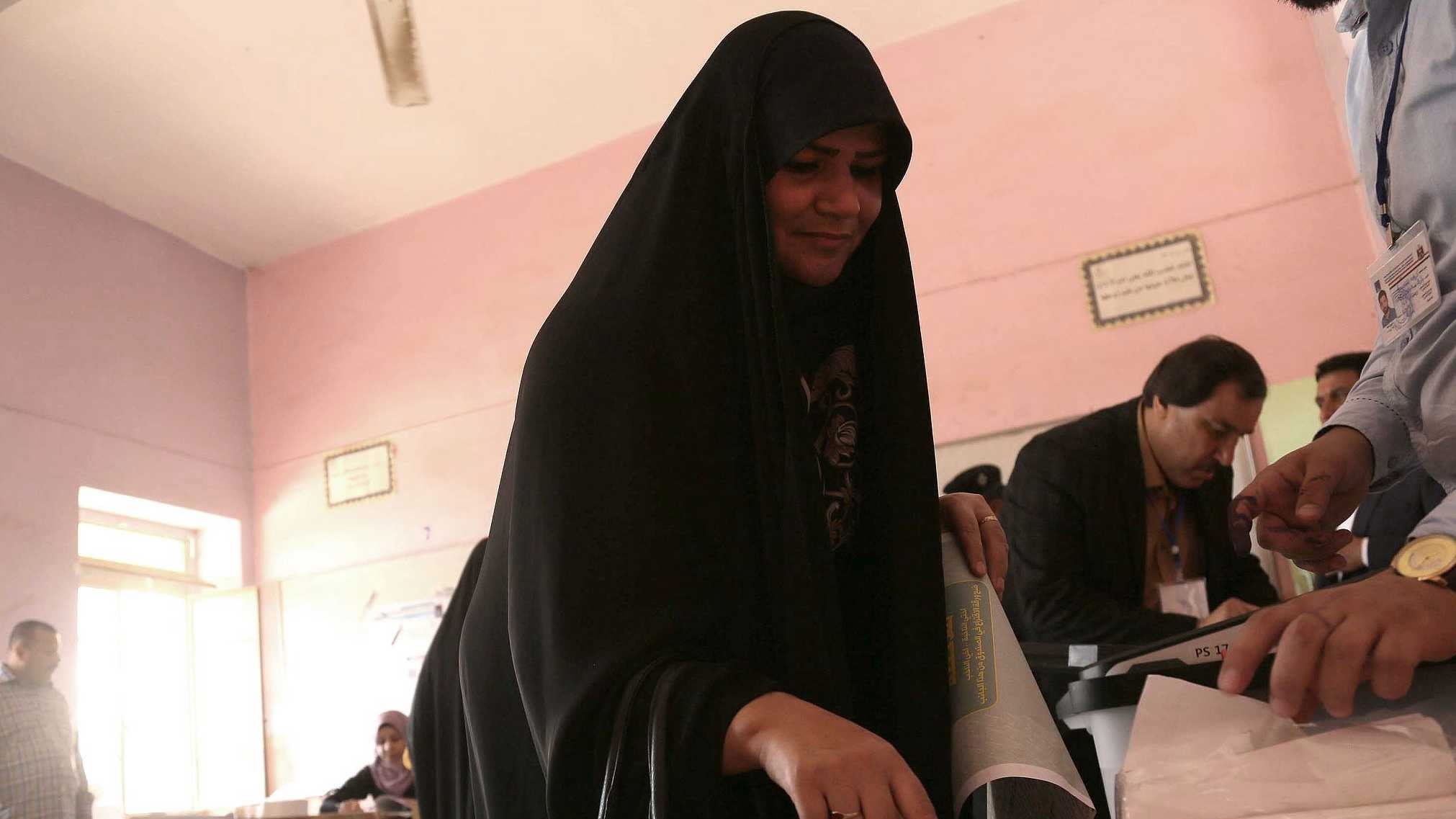
An Iraqi woman, member of the Iraqi security forces, votes at a polling station in the holy city of Karbala ahead of parliamentary elections, May 10, 2018. /VCG Photo
An Iraqi woman, member of the Iraqi security forces, votes at a polling station in the holy city of Karbala ahead of parliamentary elections, May 10, 2018. /VCG Photo
Iraq's Kurds, meanwhile, blame their leaders for gambling away hard-won autonomy in the failed independence referendum and might punish them by voting for non-traditional parties, which in turn could undermine the historically unified Kurdish bloc's position as kingmakers in parliament.
How does the election work?
More than 7,000 candidates in 18 provinces are running for 329 parliamentary seats in the national parliament. Female candidates are guaranteed 83 seats, and minorities nine.
The candidates are split into lists, factions divided between different groupings. There are five main Shia lists. No single party is likely to gain a majority, so a coalition is expected.
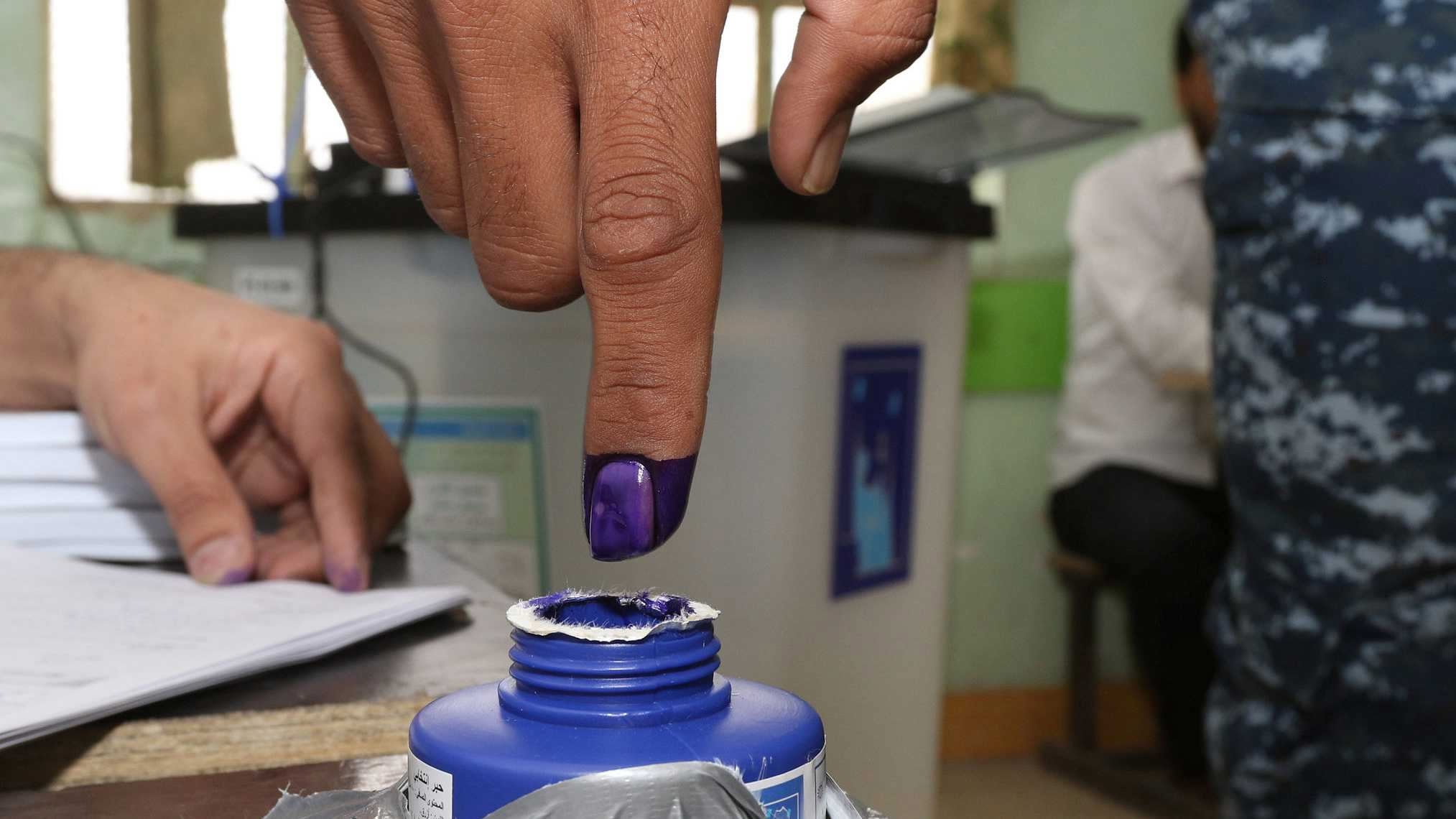
An Iraqi security member dips his finger in ink after casting his vote at a polling station, two days before polls open to the public in a parliamentary election in Kirkuk, Iraq, May 10, 2018. /VCG Photo
An Iraqi security member dips his finger in ink after casting his vote at a polling station, two days before polls open to the public in a parliamentary election in Kirkuk, Iraq, May 10, 2018. /VCG Photo
Senior government positions are unofficially split between the country's main groups. The post of prime minister has been reserved for a Shia, the speaker for a Sunni, and the ceremonial presidency has gone to a Kurd – with all three being chosen by parliament.
The Iraqi constitution sets a 90-day deadline for forming a government after the election results are formally announced and the horse-trading can be protracted.
Top image: PDK (Democratic Party of Kurdistan) supporters attend a rally for PDK candidates for Iraqi parliamentary elections at Shanadar park on May 10, 2018 in Erbil, Iraq. /VCG Photo
(With input from agencies)

